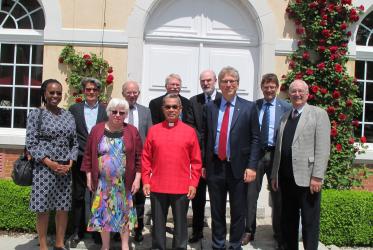Displaying 1 - 20 of 23
05 October 2021
A moment in ‘Time’: an interreligious vision in Erlangen
20 December 2018
WCC general secretary speaks on religion and discrimination
14 February 2017
Churches in Norway and Pakistan break new ecumenical ground
26 January 2017
Grand Imam calls for collaboration against violence and poverty
06 October 2016
Panel discussion fields ideas on European identity
26 April 2016
Symposium focuses on religion, violence, extremism
04 February 2016
Rebuilding a smashed church in Albania
23 December 2015













